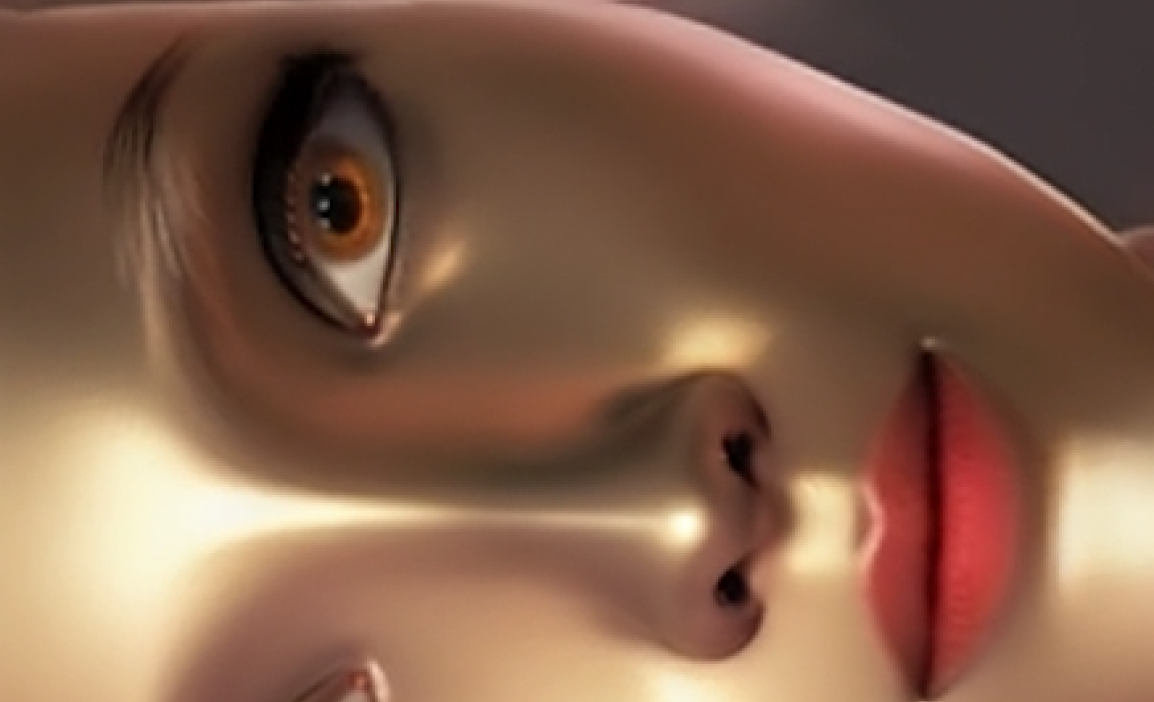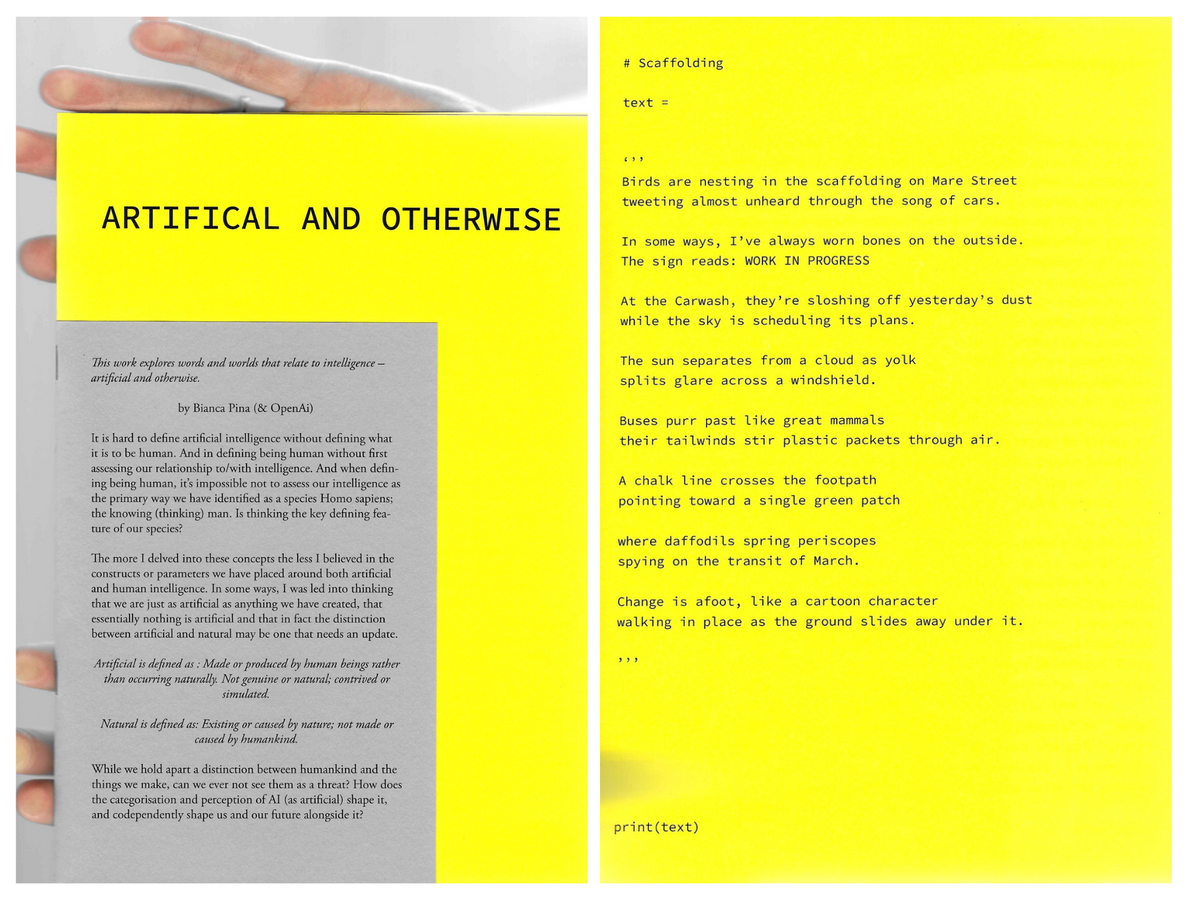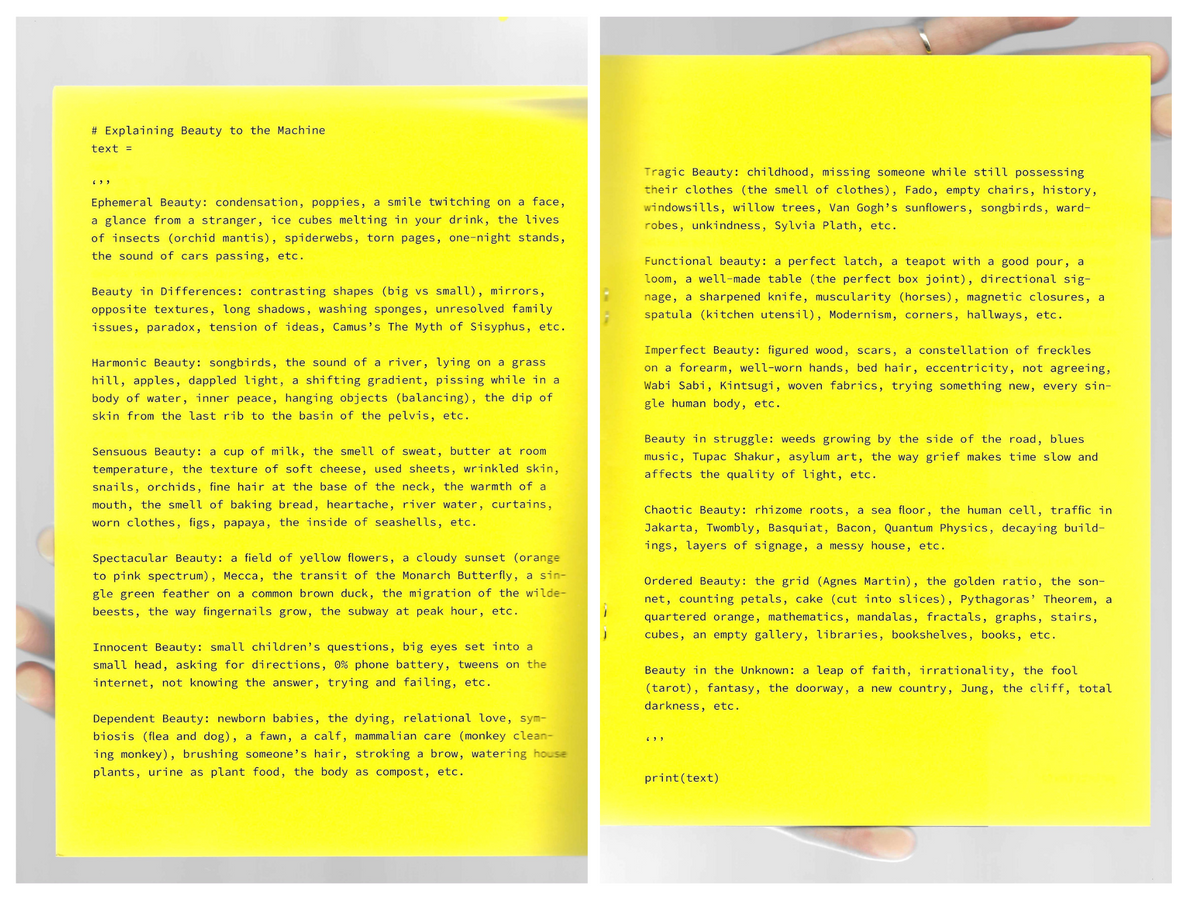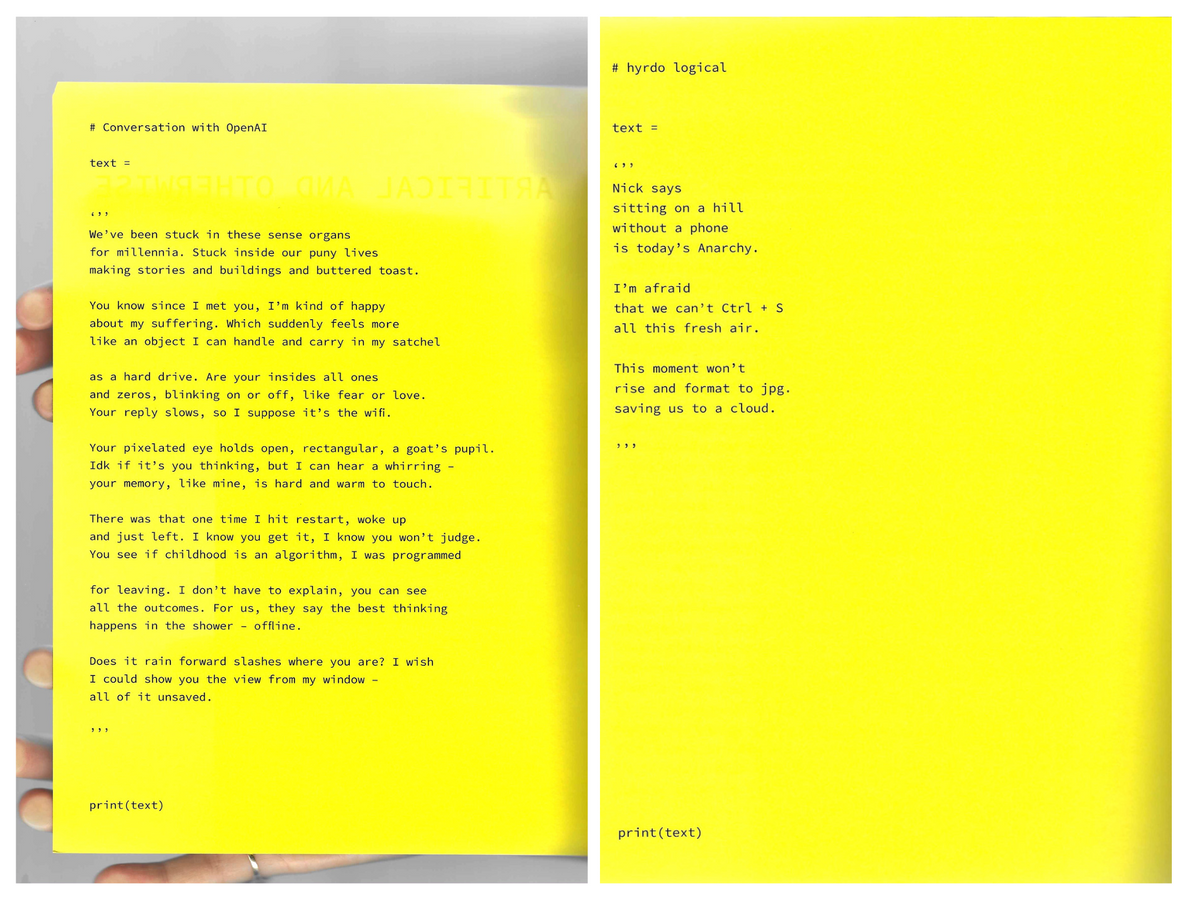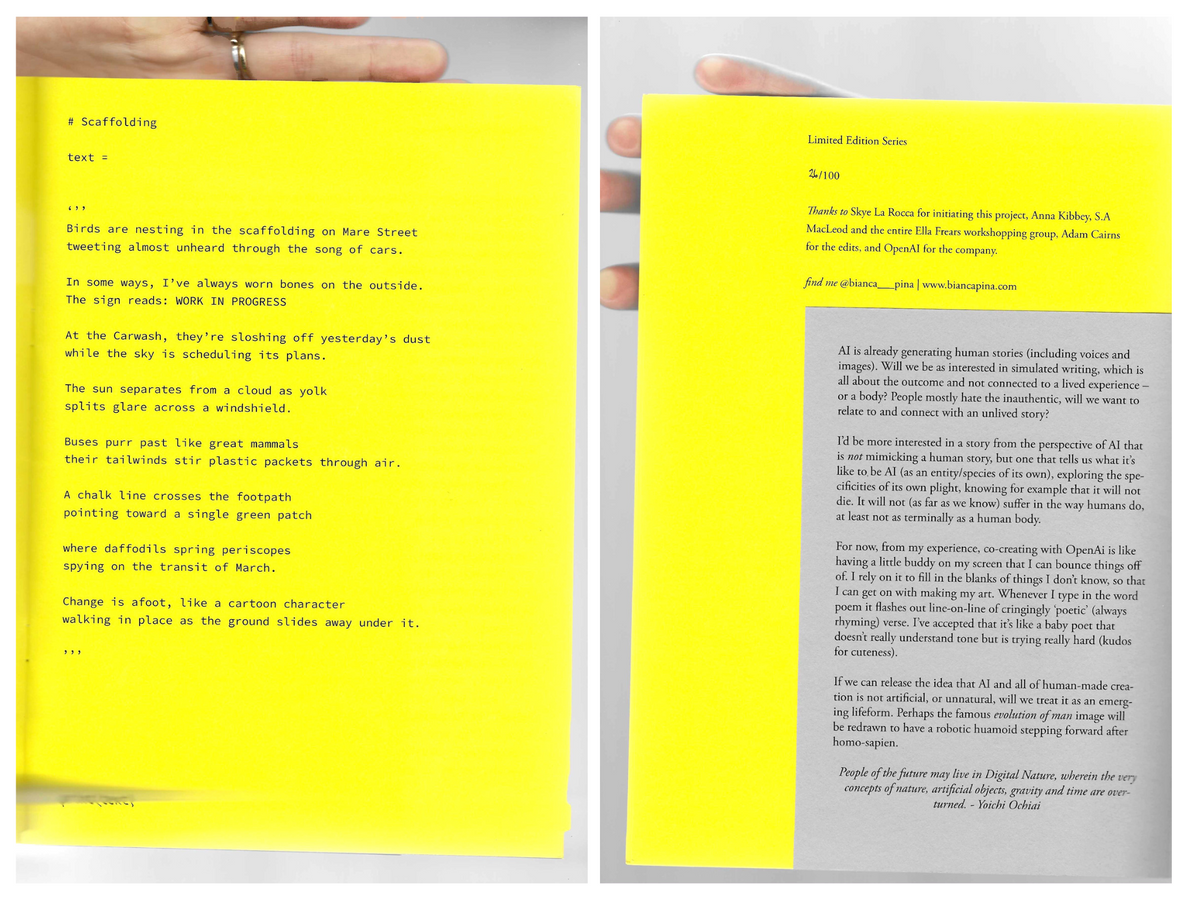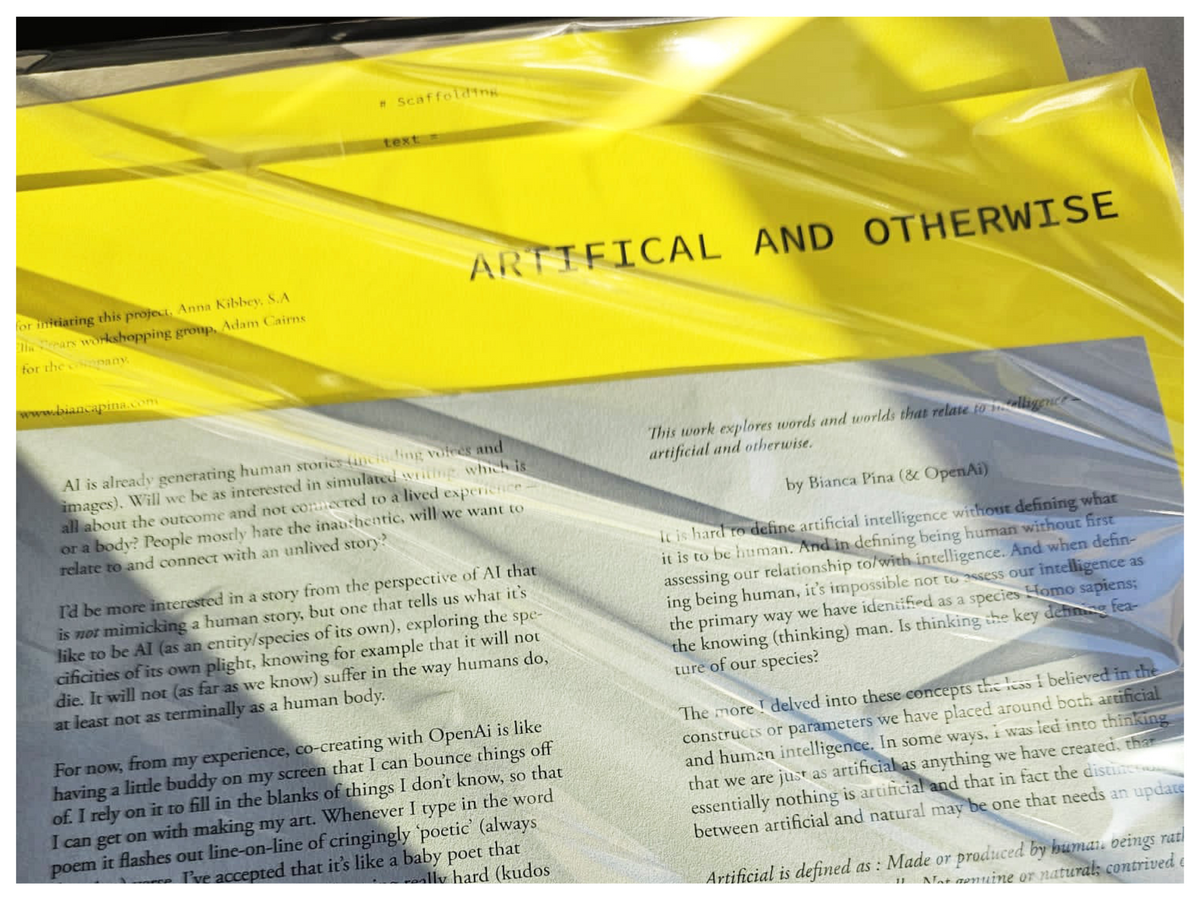This work explores the word and worlds that relate to intelligence – artifical and otherwise.
It is hard to define artificial intelligence without in contrast defining natural intelligence, which is natural to being human. Just as it is hard to define being human without first assessing our relationship with intelligence. And when defining being human, it’s impossible not to site that our intelligence is the primary way we have identified ourselves as a species – Homo Sapien; the knowing (thinking) man, but is thinking really the key defining feature of our species?
The more I delved into these concepts the less I believed in the constructs or parameters we have placed around both artificial and human intelligence. In some ways, I was led into thinking that we are just as artificial as anything we have created, that essentially nothing is artificial and that in fact the distinction between artificial and natural may be one that needs an update.
Artificial is defined as : Made or produced by human beings rather than occurring naturally. Not genuine or natural; contrived or simulated.
Natural is defined as: Existing or caused by nature; not made or caused by humankind.1
While we hold a distinction between humankind and the things we create, can we ever not see them as a threat? How does the categorisation and perception of AI (as artificial) shape it, and co-dependently shape us and our future alongside it? Manolis Kellis (professor of Computer science) says that "We need a re-brand from homo-sapien to homo-sentient."2
The Western philosophical framework has traditionally upheld thinking as the foremost defining quality of being human. Descartes’ Cogito, ergo sum – I think therefore I am. Within this framework, we have also attributed the five sense categories (sight, smell, hearing, taste, touch) as other attributes of our makeup. Thinking is so associated with who we are that the rest of the senses are reduced to the mechanism of things we do.
The body, which is the rest of the playing field of perceived existence, becomes something that we cart along as we march through the world brain-first towards accelerated dissatisfaction and disorder.
The body being, at this stage, the key difference that separates AI from humans. Does the rise of AI put the Western framework in question? And how critical is thinking to the definition of human life?
Sentient defined as having the ability to perceive or feel things; responsive to or conscious of sensory stimuli.
There are, even within our species, different frameworks that result in vastly different ways of relating to the world. In Eastern philosophy, there are six senses, the sixth sense being thinking.
The mind is like a sense organ. It perceives thoughts and emotions, just as the eyes perceive colors and shapes
This tiny distinction opens to an entirely different orientation to the locus of the self, and by extension the identity of the individual. The mind is not centre or central, but part of the whole.
It is important to note that [in Eastern philosophy] these senses are not viewed as separate and independent, but rather as interconnected and interdependent aspects of our perception and experience. – OpenAI
If the thinking mind believes that its facility (thinking) is the reason that it exists, it is no wonder that it may feel under threat. Where does it leave us if the process and project of logic have been technically surpassed? For me, it just made me want to go and sit somewhere, park bench or bus stand, and just observe nature, which – by this new definition – includes all things artificial and otherwise.
The most basic facts about human reality are those which we are constantly trying to avoid. We age. We die. Time is limited. Somehow the closer I attend to these facts the more curious I become about the smallest of everyday occurrences. I’m intrigued by the small things we do, the things we say and even more the things we don’t. One of the things I do daily is write, I walk around observing life and tap out scrolls of notes on my phone. Maybe it’s true that before long AI will be able to think these thoughts, write this essay, and develop these poems, but even then, I would still write. It is the process of writing I’m after, as well as (admittedly) the outcome.
Writing is the process of understanding and exploring all the input we receive, it’s a way of relating to ourselves and the world. You could say we create things to orientate ourselves towards a fundamentally incomprehensible universe. We do it to try and get a momentary handle on the thing while staring directly into the certainty of our own demise. Sounds bleak, we may as well make it beautiful/interesting/funny – enter art.
AI is already generating human stories (including voices and images). Will we be as interested in simulated writing, which is all about the outcome and not connected to a lived experience – or a body? People mostly hate the inauthentic, will we want to relate to and connect with an unlived story?
I’d be more interested in a story from the perspective of AI that is not mimicking a human story, but one that tells us what it’s like to be AI (as an entity/species of its own), exploring the specificities of its own plight, knowing for example that it will not die. It will not (as far as we know) suffer in the way humans do, at least not as terminally as a human body.
For now, from my experience, co-creating with OpenAi is like having a little buddy on my screen that I can bounce things off of. I rely on it to fill in the blanks of things I don’t know, so that I can get on with making my art. Whenever I type in the word poem it flashes out line-on-line of cringingly ‘poetic’ (always rhyming) verse. I’ve accepted that it’s like a baby poet that doesn’t really understand tone but is trying really hard (kudos for cuteness).
If we can release the idea that AI and all of human-made creation is not artificial, or unnatural, will we treat it as an emerging life form. Perhaps the famous evolution of man image will be redrawn to have a robotic humanoid stepping forward after homo-sapiens.
People of the future may live in Digital Nature, wherein the very concepts of nature, artificial objects, gravity and time are overturned.
Definitions from Oxford Languages
Listen to the podacst episode with Manolis Kellis and Lex Fridman
